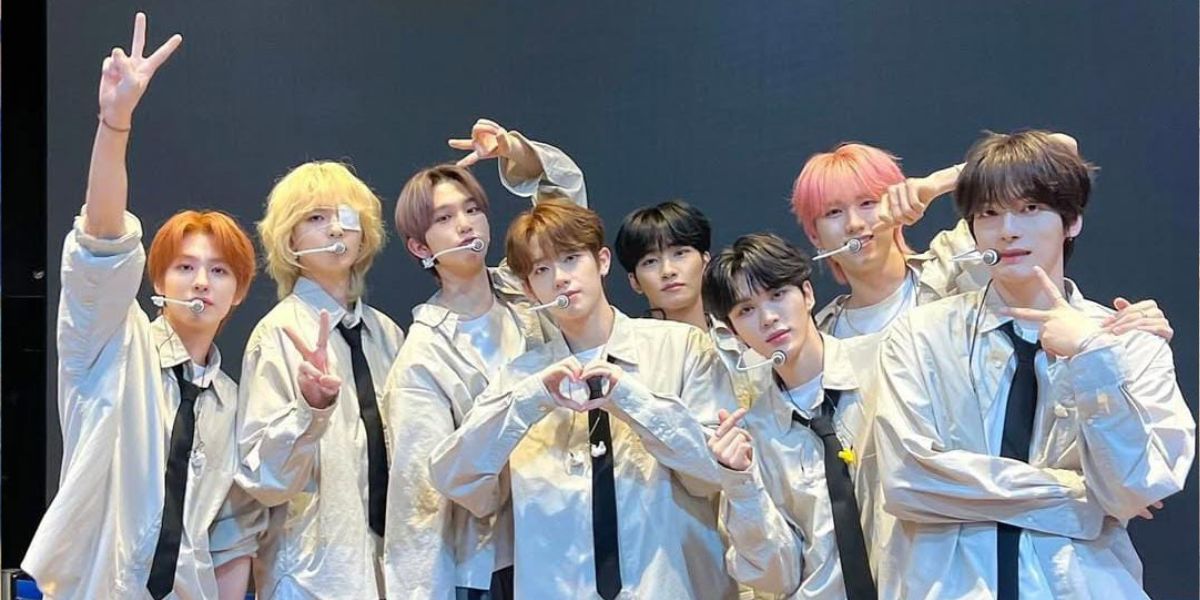7 Recommendations for the Best Korean Dramas Starring Ryeoun
Ryeoun, a talented young actor, has starred in seven of the best Korean dramas that deserve a spot on your watchlist.

Kapanlagi.com - The relationship between pop culture and geopolitical dynamics is always interesting to observe. In recent years, K-pop has become one of the most influential cultural forces globally.
However, its expansion has not always been smooth, especially when facing the policies of other countries. Now, a new wave is emerging that reopens old opportunities.
Overall, amid these changes, the K-pop industry seems ready to reclaim the stage that was previously closed off. Here’s a summary from various sources about the interesting information regarding the reopening of K-Pop concerts in China, Sunday (11/5/2025).
The ban on K-pop in China began in 2016 as a reaction to South Korea's THAAD system. The impact was significant, with concerts being canceled and Korean content disappearing from broadcasts and online platforms in China.
For nearly a decade, the K-pop industry felt the negative effects of this policy. The closure of the largest market for Korean cultural exports forced many artists and agencies to struggle for survival.

IVE holds a fansign in Shanghai (Image by ivestarship on Instagram)
TWICE and IVE held fan signs in Shanghai, Kim Jaejoong held a fan meeting in Chongqing, and Homies went on tour. All of these are signals that China is slowly beginning to accept K-pop again.
The courage of K-pop artists to return to perform in China shows that the relationship between the two countries is starting to improve. This is a small yet significant step towards normalization.
EPEX's solo concert on May 31 is not just an entertainment event, but a historic symbol. This is the first concert since 2016 from a fully Korean group to perform in China, marking a strategic breakthrough moment.
Their performance in Fuzhou is expected to attract media and fan attention, as well as pave the way for other K-pop groups to follow in their footsteps. This brings new hope for the K-pop industry to revive in the Chinese market.
K-pop album sales decreased by 19.4% in 2023, from 115.78 million to 93.28 million units. This is concerning as albums account for about 50% of agency total revenue.
This decline indicates that the K-pop industry is facing significant challenges. With a shrinking market, many agencies must find new ways to win back fans.
Despite the ban, Chinese fans remain loyal. Album imports rose from $33.9 million (2022) to $59.78 million (2023).
In just the first two months of 2024, imports reached $9.25 million, surpassing Japan, Taiwan, and the US. This shows that despite the ban, fans' love for K-pop has never faded.

Portrait of KPop idol TWICE (Image by twicetagram on Instagram)
With the potential for full opening, China could surpass other major markets. The large import volume is evidence that China can become the largest export market for the global K-pop industry.
If the ban is fully lifted, China is predicted to contribute more than 25% of K-pop concert revenue by 2025. This is a very significant figure for an industry that is struggling.
Although open, the Chinese market is no longer the same. There is now competition from the emerging local idol industry, as well as the shadows of geopolitical dynamics that could affect the sustainability of this cultural relationship.
The K-pop industry must face the reality that they are not only competing with local artists but also need to pay attention to the existing political tensions. This is a challenge that must be confronted to shine again in this very large market.
This opening is not just a fleeting business opportunity. The K-pop industry needs to prepare a sustainable long-term strategy to build a stable and mutually beneficial cultural relationship with China.
By planning more collaborations and strengthening relationships with fans, K-pop can ensure that they are not just making a temporary return. This is an opportunity to build a strong foundation for the future.
This opening is not just a fleeting business opportunity. The K-pop industry needs to prepare a sustainable long-term strategy to build stable and mutually beneficial cultural relationships with China.
By planning more collaborations and strengthening relationships with fans, K-pop can ensure that they are not just returning temporarily. This is an opportunity to build a strong foundation for the future.
(kpl/sfa)
Cobain For You Page (FYP) Yang kamu suka ada di sini,
lihat isinya
Ryeoun, a talented young actor, has starred in seven of the best Korean dramas that deserve a spot on your watchlist.
It’s buzzing that Maia Estianty will not attend her own child's wedding reception, here are her portraits at Luna Maya's reception.
Member of Commission X of the Indonesian House of Representatives, Verrell Bramasta, speaks out about the discourse on student coaching. Here are the details.
As a comedian, Wendy realizes that the laughter and happiness she spreads can have a much greater impact than she imagines.
Actor Cinta Brian is currently a topic of public discussion due to his closeness with the beautiful artist Gisella Anastasia. Check out the portrait of Cinta Brian with his two younger brothers who are also pursuing a career as actors.
Luna & Maxime agreed to remember their parents through the meaningful fabric.
Zul's wife, Retno Paradinah, revealed that her husband still receives royalties every year from his previous works.
Behind his controversial attitude, there is another side of Ahmad Dhani that is rarely revealed to the public. What is it? Let's take a look below!
Indra Bruggman speaks out about his two old friends, Jonathan Frizzy and Steve Emmanuel, who are currently facing legal issues. Here are the details.
The love story of singer Dara The Virgin with young DJ Jaime Alvaro is in the spotlight. Here are the details.
Although serving a prison sentence, Zul Zivilia continues to strive to fulfill his role as the head of the family. Here are the details.
At the event she attended, Celine expressed her gratitude for being given ease and for meeting good people who helped strengthen her intention to change.